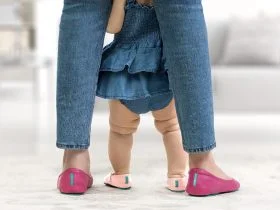Going through a divorce is undeniably one of life’s most challenging experiences. The emotional and logistical complexities can be overwhelming, leaving you feeling drained and uncertain about the future. Amidst the chaos, it’s crucial to remember that your children are also deeply affected by this major life change. By putting their needs first, you can help them navigate this difficult transition with as little emotional trauma as possible.
Reader's Roadmap
Ensuring Stability Through Expert Legal Guidance
During a divorce, one of the most effective ways to keep your children happy and emotionally stable is by seeking the assistance of a legal expert. Whether you decide to reach out to a Brisbane family lawyer or a lawyer from another region, the expertise and support provided by a knowledgeable attorney can help you navigate the intricate legal intricacies of divorce, ensuring the protection of your children’s best interests. By addressing legal matters efficiently, you create a more secure and predictable environment for your children, alleviating their worries and allowing them to focus on being kids. With proper legal help, you can pave the way for a smoother transition and, ultimately, contribute to your children’s happiness during this challenging time.
Consistent Routines Provide Comfort
Children thrive on routine and predictability. The upheaval caused by divorce can disrupt their daily lives, leaving them feeling adrift. To counter this, maintain consistent routines and schedules as much as possible. This will provide a sense of comfort and stability, helping your children adapt to their new normal more smoothly.
Stability in an Unstable Time
Consistent routines offer a sense of stability during a time of upheaval. Maintaining familiar daily schedules, such as meal times, bedtime routines, and extracurricular activities, can provide your children with a reassuring sense of normalcy. Knowing what to expect helps them feel more secure and less anxious.
Reduces Anxiety
Divorce often brings about a great deal of uncertainty for children. By adhering to established routines, you can help alleviate some of their anxiety. Predictable schedules reassure them that some aspects of their lives remain unchanged, regardless of the changes in the family structure.
Promotes Healthy Development
Consistent routines not only provide emotional comfort but also promote healthy development. Children learn time management, responsibility, and organization through daily routines. These skills are essential for their overall growth and will serve them well as they grow older.
Effective Communication Is Essential
Open and honest communication is crucial during a divorce, especially when it comes to your children. Keep them informed about the changes that are happening without overburdening them with adult details. Be a united front with your ex-spouse when discussing important matters related to your children, ensuring they don’t feel caught in the crossfire. Encourage them to express their feelings and concerns, and assure them that their voices matter.
Transparency and Age-Appropriate Information
While it’s essential to be open and honest with your children, it’s equally important to provide age-appropriate information. Shield them from adult details that could be distressing, but do not keep them in the dark. Explain the situation in a way that they can understand, ensuring they feel informed and not left in the dark about the changes occurring in their lives.
Active Listening
Be an active listener when your children do share their thoughts and feelings. Avoid dismissing or minimizing their concerns. Instead, validate their emotions and reassure them that you are there to support and love them, no matter what. Active listening strengthens the bond of trust between you and your children, making it easier for them to communicate with you in the future.
Seek Professional Support
Divorce is a complex process, and it’s okay to admit that you might need help. Consider enlisting the support of professionals, such as therapists or counselors, who specialize in helping children cope with divorce. These experts can provide guidance and strategies to address the specific emotional needs of your children, giving them the tools to navigate this challenging time.
Expert Guidance
Therapists and counselors experienced in working with children and divorce can offer expert guidance. They understand the unique emotional challenges your children may face and can provide strategies tailored to their needs. This guidance can be invaluable in helping your children process their emotions and adjust to the changes in their family structure.
A Safe Space to Express Feelings
Professional support creates a safe and non-judgmental space for your children to express their feelings. Sometimes, kids may be hesitant to share their emotions with their parents to avoid adding to their burdens. Therapists and counselors can bridge this gap, allowing your children to open up about their fears, anxieties, and concerns.
Building Coping Skills
These professionals can equip your children with valuable coping skills that will serve them well not only during the divorce but throughout their lives. These skills can include strategies for managing stress, improving communication, and fostering resilience. By investing in their emotional development, you’re helping them build a strong foundation for the future.
Co-Parenting Is Key
Co-parenting plays a pivotal role in ensuring your children’s well-being during a divorce. It’s essential to work together with your ex-spouse to maintain a united front for the sake of your children. Even though you may no longer be partners, you will forever be co-parents. By demonstrating respect for one another and working as a team, you can provide a consistent and harmonious environment for your children.
Keep lines of communication open with your ex-spouse, establish clear guidelines for parenting, and avoid using your children as messengers or pawns in your own conflicts. Remember that their needs should always come before any personal grievances.
Monitor Your Own Well-being
It’s easy to lose sight of your children’s well-being when you’re grappling with your own emotional turmoil during a divorce. However, it’s crucial to recognize that your emotional health directly impacts your ability to support your children. Seek your own support network, whether through friends, family, or therapy, to help you manage your emotional and mental health. When you take care of yourself, you’re better equipped to provide the love and stability your children need during this difficult time.

As divorce can be quite challenging, it’s easy to overlook the impact it has on your children. However, by prioritizing their emotional stability, maintaining consistent routines, practicing open communication, seeking professional support, co-parenting effectively, and monitoring their own well-being, you can significantly improve their experience during this turbulent time. Remember that your children are resilient, and with your help, they can not only weather the storm but emerge from it stronger and more prepared for the future.







Leave a Reply
View Comments